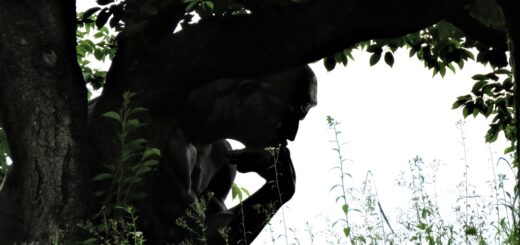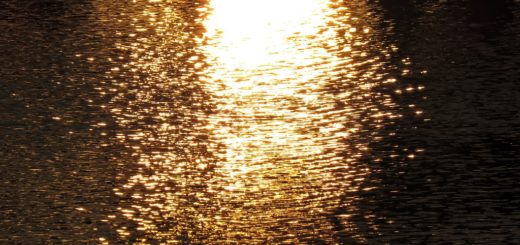The Freedom You Have
Montaigne wore a medallion around his neck engraved with the words, “What do I know?” It was his way of continually reminding himself of the necessary humility at the heart of the sometimes hubristic philosophic quest.
My version of Montaigne’s medallion is the home screen of my cell phone, which, for about six months, has been adorned with my customized welcome message, “I am not free.” It reminds me of the humility of my condition, forced upon me in this case not by nature, but by man.
There is also, however, a measure of irony in that humbling sentence with which I greet myself several times each day, just as there was in Montaigne’s. We may call this irony the secret revenge of philosophy, or the recalcitrant slave’s paradox. For I am not free, and yet I think as my mind compels me to think, to the fullest extent of my rational ability. I am not free, but I write what I wish, without regard for public reception or compatibility with “the age.” I am not free, but I continue to converse with a few true friends and students about the good life, the hierarchy of ends, and the ultimate insignificance of most of what men call “living” today.
I am not free, but each year, perhaps each day, I detach myself a little further from the concerns of that world which in conversation I often represent with the word “Normal.” I detach myself from reputation; from society’s phantasms of success; from the residue of the youthful need for the approval or approbation of one’s peers or superiors; from society’s constant and universal prodding toward delusional and spiritually suffocating notions of security and comfort; and from the veil of those personal vested interests and sentimental associations that can become the most dangerous impediments to rational inquiry and its ultimate aim, self-knowledge.
I am not free, insofar as I am mere matter hurtling through space and time, as our scientific materialists would have it, since on their account I am indistinguishable from any other blob of matter subject to the blind necessities of cause and effect — and since, on my account of the materialists’ central folly, there would necessarily be no minds (free or otherwise) with which to make any such distinctions.
I am not free, insofar as I am an individual human being among others, since the others among whom I live, or at least the vast majority of them, have accepted the principle that my life, work, and mind belong to the state, and have helped to build political and social structures to remind me in myriad ways of the state’s ownership of my being, and of my ultimate powerlessness to defend myself and those I care about against the leviathan of progressive suffocation.
But I am free not to deny reason’s existence and call this denial science, when in fact it is merely self-contradiction. I am free not to believe that the state’s existence is logically or morally prior to mine, even if I can do little to manifest this belief in practice during tyrannical times, and even if in so believing I increasingly subject myself to material risk.
My freedom lies in refusing to pretend I know what I do not know, even when the age demands that I bow before certain ideas or be judged obsolete or dangerous for refusing to bow. My freedom lies in continuing to live as though my soul matters more than my body, my mind more than the comforts and gratifications of the day, and my self-understanding, however incomplete, more than practical convenience or “safety.”
I am free every time I see tyranny, and dare to name it. I am free every time I teach another soul how to see through the veil of irrational authority that dominates this age, and to find his or her own rougher but more natural path to walk. I am free every time I see what I stand to lose by living as though I am free in the midst of tyranny, and nevertheless muster the courage to answer that awareness in my heart with the thought, “I don’t care.”
I am not free to the extent that I am a body animated by a passive instrument of perception and feeling infused with the power of practical deliberation, which experiences itself today as a natural agent that is rapidly losing all of its genuine agency through artificial restraints imposed from without.
I am free to the extent that I am a soul activated by the longing for being and guided, however clumsily, by my own befogged vision of reality, rather than by illusions presented to my imagination by the approval of others, the fear of time, the comfort of belonging to a tribe, or the painful and pleasant distractions of “the body” or “society.”



